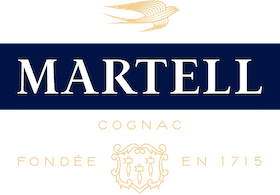Collection
Cocktails
La Maison
Visit Us
What Do The Initials VS, VSOP, XO And XXO Mean?

Do the initials hold meaning?
In the realm of fine spirits, Cognac stands distinguished, not just by its exquisite taste but also by the initials that adorn its labels.
These initials, seemingly simple yet imbued with layers of significance, are the gateways to understanding the essence of Cognac. Each abbreviation carries with it a tale of aging, craftsmanship, and the mastery behind blending, culminating in distinct experiences within each bottle.
What is the difference between VS, VSOP, XO and XXO?
VS, VSOP, XO and XXO refer to the age and quality of the cognac. Each corresponds to how it has been aged in oak barrels.
In 1983, following a request by the BNIC (Bureau National Interprofessionnel du Cognac)*, the French government drafted regulations governing the terms used to describe a cognacs’ quality. These designations, which may be included on the label, refer to the age of the youngest eau-de-vie (the distilled wine) used in making the cognac.
What VS stands for?
VS stands for “Very Special”: only eaux-de-vie at least two years old can be used to make a VS cognac. Behind the initials, other denominators and expressions are permitted, such as “3 stars”, “selection” or “luxury”, and as such are included in the VS cognac category.
Martell VS cognac embodies a harmonious combination of flavors, displaying the essence of meticulous aging and blending techniques. It is a rich, fruity and smooth cognac that is ideal for long drinks and cocktails.
What does VSOP mean?
VSOP stands for “Very Superior Old Pale”. To achieve this classification, VSOP cognacs must be created from eaux-de-vie aged for at least four years. The VSOP category includes designations such as “Old” or “Reserve”.
Martell VSOP cognac is an authentic expression of the Martell style, the result of the development of refined aromas, illustrated by fruity, savory notes.
Did you know?: In 1831, a letter from Frédéric Martell said a customer wanted ‘one hogshead Very Superior Old Pale brandy – price no object’. This was the first mention of Martell VSOP.
Martell VSOP
What does XO signify?
XO, the acronym for “Extra Old”, denotes a complex blend of many eaux-de-vie, the youngest of which has been aged for at least ten years in a barrel. It is now known as the ‘gold standard’ in cognac. Cognacs such as “Old Reserve” are equivalent to XO cognac.
Martell XO
Martell XO is a bold and powerful cognac. It expresses the unique character of the Grande Champagne terroir, balanced by the elegance of the rare Borderies cru.
How old is an XXO cognac?
Introducing a new era of refinement, XXO, or “Extra Extra Old,” emerged in 2018 as a distinction for cognacs made from eaux-de-vie aged for a minimum of fourteen years.
Martell XXO
Martell Cellar Master Christophe Valtaud has gone one step further by creating Martell XXO as a tribute to the heritage of nine generations of cellar masters. He has blended over 450 eaux-de-vie to create a smooth and complex cognac that highlights the magnificence of the Cognac terroir and the finesse of the region’s finest crus.
Which is the best cognac between VS, VSOP, XO and XXO?
Choosing the “best” Cognac is subjective and varies based on personal taste preferences. Some may prefer the youthful and vibrant nature of a VS, while others may appreciate the depth and complexity of an XO or XXO.
For more detail on cognac and how it is made at Martell, see our craftsmanship section.
Why are these abbreviations in English?
Did you know?: Incidentally, the reason these abbreviations are in English is because cognac has been exported for many years and the first importers spoke English.
The reason these abbreviations are in English, stems from the historical context of Cognac’s exportation. Over the years, Cognac has been a highly sought-after spirit in international markets, and its popularity led to widespread exportation to various countries, including English-speaking nations.
During the period of Cognac’s expansion into global markets, the primary importers and consumers often spoke English. To cater to these international consumers and facilitate easier understanding and recognition of different quality grades or classifications, Cognac houses adopted English abbreviations on their labels. This decision aimed to create a universal standard that transcended language barriers and allowed consumers worldwide to identify and comprehend the quality levels of Cognac.
*Public-service organisation responsible for looking after the interests of cognac and all related activities.
Please do not share with anyone under 21. Drink responsibly.
























